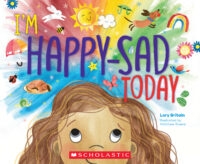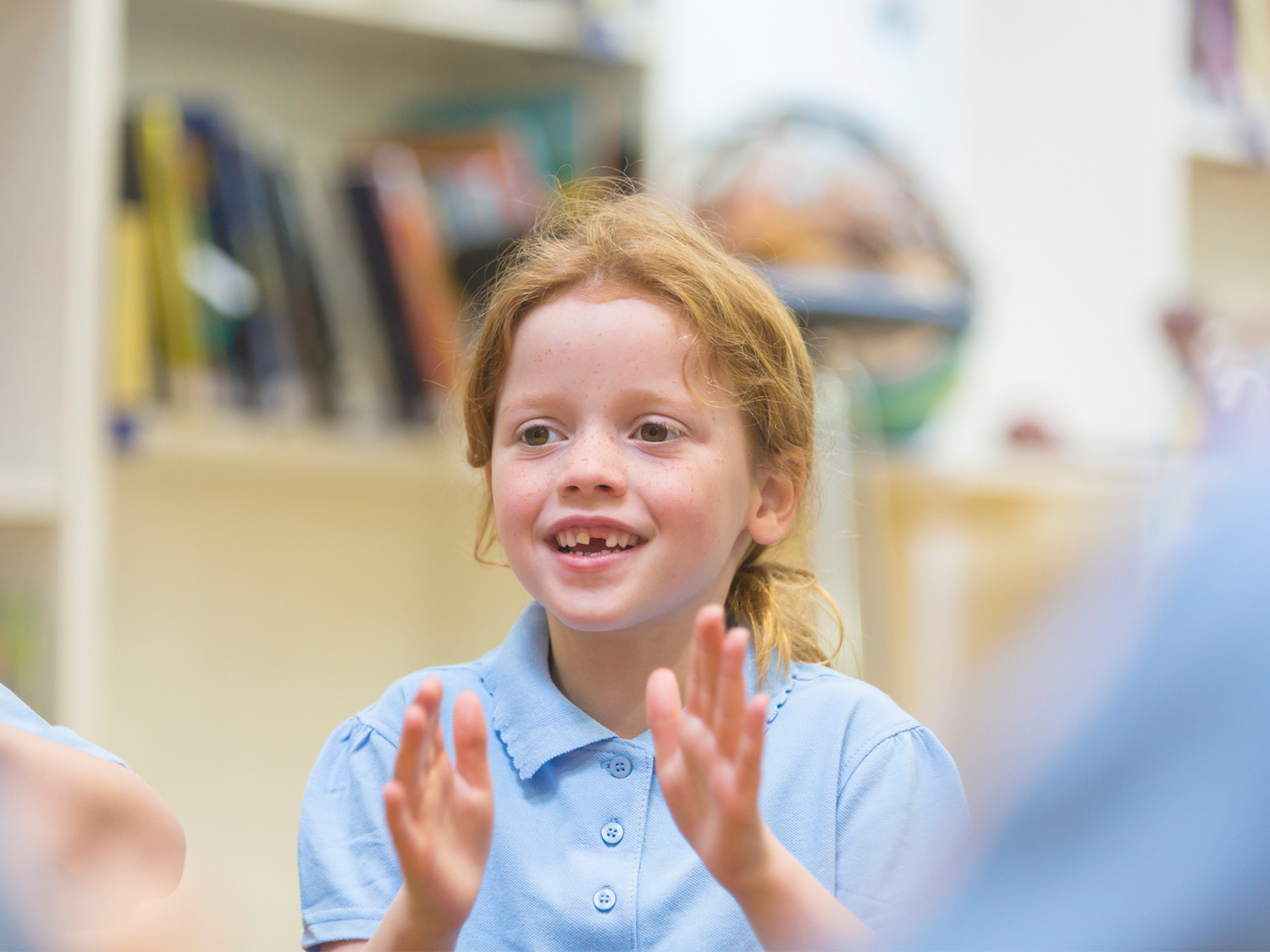5 Ways to Build Students' Self-Confidence With Poetry
Help kids develop a positive self-esteem with these self-affirming activities.
With increased exposure to the media as students progress through their school years, it’s more important than ever to ensure students hold positive beliefs about their self-image and abilities.
Teaching poetry is a great way for students to express themselves, and this class poetry project will allow them to explore different aspects of themselves in a positive, guided, and supportive manner.
Provided by Genia Connell, a 3rd-grade teacher in Michigan, this class project is inspired by The Best Part of Me, a poetry and photography book by Wendy Ewald. These activities will give your students the opportunity to unabashedly choose a part of themselves they love and write an expressive poem about it.
Here’s how to incorporate it into your classroom.
Plus, use these poetry books to spark students' inspiration and creativity.
1. Have Students 'Mirror' Your Example
To get started, Connell suggests pulling out a hand-mirror in front of your class and staring at yourself, smiling. When one of your students asks what you are doing, let them know you are admiring the best part of yourself. For example: I’m looking at my nose because I absolutely love it! I think my nose is definitely the best part of me.
Then, list the reasons why you like that part of yourself. For example: it’s sharp and pointy; it looks like my mom’s nose so it reminds me of her; I can smell delicious brownies and apple pie with it; it holds up my glasses.
Next, ask your students if there are any parts of themselves that they absolutely love. While your students may be initially reluctant to speak up, if you’ve already set the example, they will be more eager to share.
2. Read Poems and Books About Self-Confidence
After your students have identified a part of themselves they love, introduce them to poems and books that center on self-esteem. Connell likes to read several poems and books that focus on positivity and appreciating who you are.
Once students have gotten a feel for positive self-image poetry, ask them to think about what part of themselves they would like to write about and have a picture taken of them the next day.
3. Get Camera Ready
Connells suggests giving students a great deal of autonomy as you photograph their self-described best parts. These photos will become an important part of their poetry project.
“I let my students choose where they want their photograph to be taken and what type of pose they want,” she says. “A few students will even act as photographers, taking photos for their friends.”
After all the pictures are taken, print them for students to see, but only with the student’s permission. Children, like many adults, can feel uncomfortable seeing parts of themselves in a photograph. Allow students to approve their photo before it’s printed or let them choose to have the photo retaken.
4. Guide Students to Their Inner Poet
Using their photos as inspiration, have students draft a poem that expresses the best part of them. Offer simple guidelines for writing their poem, such as:
- Describe what your best part looks like — size, color, shape, texture.
- Tell what your best part allows you to do that you enjoy.
- State the words, the best part of me, somewhere in your poem.
Connell recommends giving students as much freedom as possible to express themselves.
“While students might ask classmates to look over their poem, try not to intervene as it will keep each student’s work pure and authentic,” she says.
5. Publish Their Works of Positivity!
Once students complete their poems, have them glue their photo and poem onto construction paper. Then, create a banner displaying each image and poem. Students will love searching for their photo and identifying which part belongs to whom.
Alternatively, you can upload your students’ pictures and poems into a digital book and share it with the class. Your students may even want to read aloud their poem to the class, giving them the opportunity to readily affirm their positive self-image in front of a supportive audience.
Shop books about self-confidence below! You can find all books and resources at The Teacher Store.
The complexity of mixed feelings are addressed in this brightly colored, empathetic picture book with a section for caregivers.
Declarative text and bright visuals coach readers to practice empathy.
Based on the experiences of athlete and activist Colin Kaepernick, this book will inspire kids to stay true to their identities and advocate for change while celebrating self-discovery.
Beauty is much more than how one looks on the outside. True beauty is found in conquering challenges, showing kindness, and spreading contagious laughter. Beautiful girls are empowered, smart, and really, really strong!
Told through creative language play, and with depth and whimsy, this picture book reminds readers of their own agency and the power they have to direct their own path.
With light-footed rhymes and high-stepping illustrations, this tale is gentle inspiration for every child with dreams of greatness.
It is vital that students learn social emotional skills like confidence, compassion, resilience, and responsibility. This collection from Scholastic features titles that teach confidence to children.
This playful parody of butterfly migration-delivered with hilarity and heart-pays loving homage to every child's struggle to spread their wings and gain confidence and independence.
An inclusive poem of self-acceptance is warmed by radiant portraits of young women of color.
At once silly and serious, Karen Beaumont's joyous rhyming text and David Catrow's wild illustrations unite in a book that is sassy, soulful, and straight from the heart.
Featuring the author's trademark bold, bright colors and silly scenes, this book embraces differences in a unique way.
Molly Lou Melon is short and clumsy and has buckteeth and a voice like a bullfrog But armed with the encouraging words of her grandmother, Molly Lou confidently confronts the class bully at her new school.
In a sweetly appealing tale of overcoming your fears, newcomer Gaia Cornwall captures a moment between a patient and encouraging father and a determined little boy you can't help but root for.
With a simple, witty story and free-spirited illustrations, Peter H. Reynolds entices even the stubbornly uncreative among us to make a mark, and to follow where it takes us.
Although he is shorter than most of his classmates and everyone discourages him from trying out for the basketball team, eight-year-old Chris just works harder than everyone else so his size will not matter.
With a fresh and deceptively simple style, acclaimed author Sharon Creech tells a story with enormous heart. Written as a series of free-verse poems from Jack's point of view, this book shows how one boy finds his own voice with the help of a teacher, a writer, a pencil, some yellow paper, and of course, a dog.




















